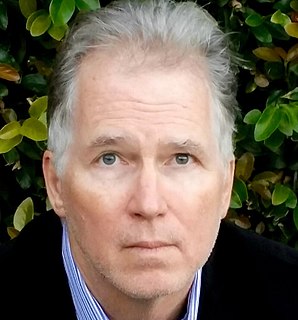A Quote by W. R. Thompson
I am not satisfied that Darwin proved his point or that his influence in scientific and public thinking has been beneficial ... the success of Darwinism was accomplished by a decline in scientific integrity.
Related Quotes
Darwin seems to lose out with the public primarily when his supporters force him into a mano-a-mano Thunderdome death match against the Almighty. Most people seem willing to accept Darwinism as long as they don't have to believe in nothing but Darwinism. Thus, the strident tub-thumping for absolute atheism by evolutionary biologists like Richard Dawkins, whom the new issue of Discover Magazine rightly criticizes as "Darwin's Rottweiler," is self-defeating.
To be sure, Darwin's theory of evolution is imperfect. However, the fact that a scientific theory cannot yet render an explanation on every point should not be used as a pretext to thrust an untestable alternative hypothesis grounded in religion into the science classroom or to misrepresent well-established scientific propositions.
The need for general scientific understanding by the public has never been larger, and the penalty for scientific illiteracy never harsher. Lack of scientific fundamentals causes people to make foolish decisions about issues such as the toxicity of chemicals, the efficacy of medicines, the changes in the global climate.
It is ironic that the scientific facts throw Darwin out, but leave William Paley, a figure of fun to the scientific world for more than a century, still in the tournament with a chance of being the ultimate winner... Indeed, such a theory is so obvious that one wonders why it is not widely accepted as being self-evident. The reasons are psychological rather than scientific.
Although I know of no reference to Christ ever commenting on scientific work, I do know that He said, "Ye shall know the truth, and the truth shall make you free." Thus I am certain that, were He among us today, Christ would encourage scientific research as modern man's most noble striving to comprehend and admire His Father's handiwork. The universe as revealed through scientific inquiry is the living witness that God has indeed been at work.
I am a big fan of Neil DeGrasse Tyson. He's the voice of science and scientific thinking in the United States and the world. He's the most visible proponent of scientific thinking, and he's very unflinching about it. He knows that it's correct and vouches for it in a very intelligent and very firm way, which I really appreciate.
I conceive that the leading characteristic of the nineteenth century has been the rapid growth of the scientific spirit, the consequent application of scientific methods of investigation to all the problems with which the human mind is occupied, and the correlative rejection of traditional beliefs which have proved their incompetence to bear such investigation.
The first objection to Darwinism is that it is only a guess and was never anything more. It is called a "hypothesis," but the word "hypothesis," though euphonious, dignified and high-sounding, is merely a scientific synonym for the old-fashioned word "guess." If Darwin had advanced his views as a guess they would not have survived for a year, but they have floated for half a century, buoyed up by the inflated word "hypothesis." When it is understood that "hypothesis" means "guess," people will inspect it more carefully before accepting it.
I have always thought it a great privilege to have as my colleague in the Palit Chair of Chemistry such a distinguished pioneer in scientific research and education in Bengal as Sir Prafulla Ray. It has been invariably my experience that I could count on his cooperation and sympathy in every matter concerning my scientific work.


































